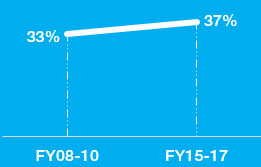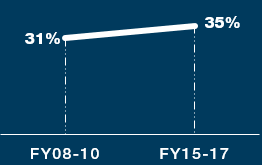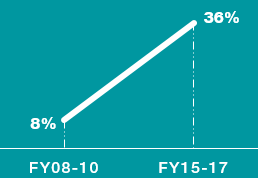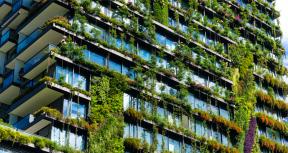RAP 2017 > Chapter 1: Environmental Sustainability
RAP 2017 - Chapter 1: Addressing Environmental Sustainability in World Bank Group Operations
 Environmental sustainability is the special topic of this year’s report on the Results and Performance of the World Bank Group. Chapter 1 explores selected topics on environmental sustainability, examining how the WBG portfolio incorporates potential environmental sustainability benefits, assessing the indicators that measure environmental results, and reviewing systems for addressing potential negative environmental effects.
Environmental sustainability is the special topic of this year’s report on the Results and Performance of the World Bank Group. Chapter 1 explores selected topics on environmental sustainability, examining how the WBG portfolio incorporates potential environmental sustainability benefits, assessing the indicators that measure environmental results, and reviewing systems for addressing potential negative environmental effects.
Share of World Bank project components with potential environmental benefits.

Share of IFC projects
with potential environmental benefits.

Share of MIGA projects
with potential environmental benefits.

Highlights
- Country strategy indicators on environmental sustainability are generally of adequate quality but provide an incomplete picture of country-level results because they do not capture all major activities and were adequate to assess achievements for only 77 percent of objectives or outcomes.
- World Bank project indicators on environmental sustainability are broadly adequate for Clean and Resilient projects, but because of indicator design issues, they are often inadequate to demonstrate the effectiveness of Green projects or show capacity building across all sectors.
- Measurement systems for environmental results are more effective when they include intermediate outcomes or tie quality measures into indicators. Measurement systems are limited by the project cycle and leave knowledge gaps on long-term impacts.
- Reforms to environmental and social risk management policies for World Bank investment project financing and IFC investments and MIGA guarantees resulted in some improvements, but guidance and tools for monitoring and reporting systems are not yet in place for the Environmental and Social Framework (which becomes operational in FY 2019) and some newly introduced differences in treatment across institutions may require further harmonization.


